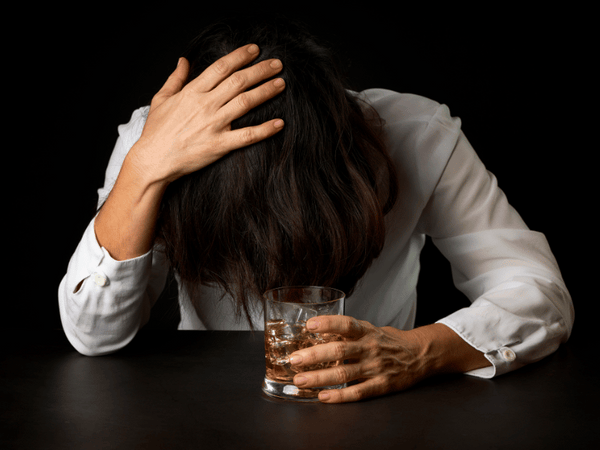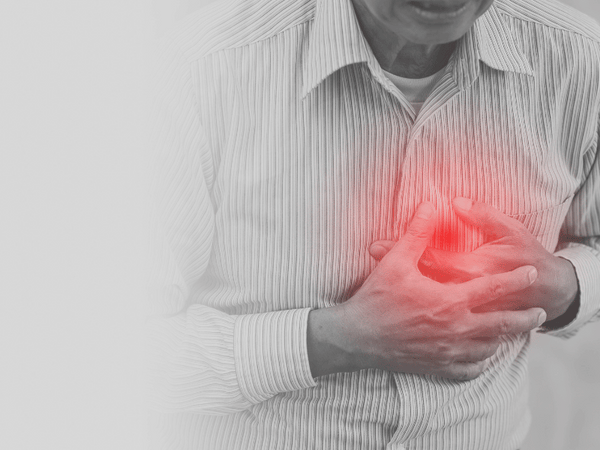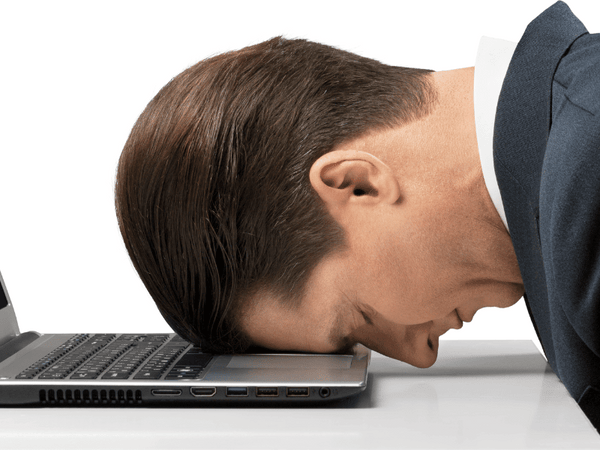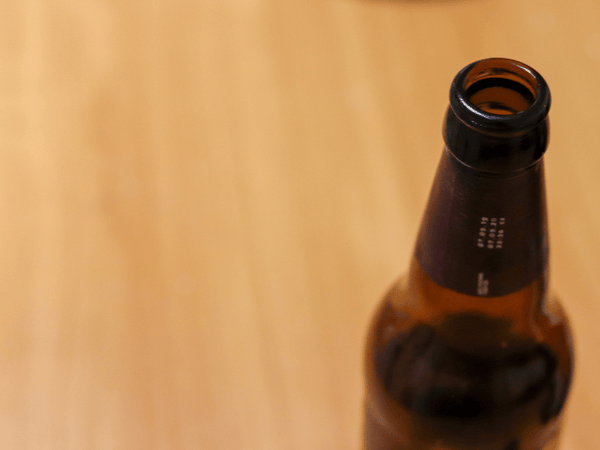Have you ever experienced that sinking feeling of anxiety the morning after a night of heavy drinking? You're not alone. This phenomenon, often referred to as "hangxiety," is a common experience for many individuals who consume alcohol. But what is hangxiety anyway, and why does it occur?
In this article, we'll delve into the intricacies of hangxiety, exploring its causes, symptoms, and coping strategies. From understanding the psychological and biological factors at play to recognizing the impact they can have on mental health, we'll uncover the complex relationship between alcohol abuse and anxiety.
Whether you're someone who frequently battles hangxiety or is simply curious about this phenomenon, join us as we navigate through the maze of hangxiety and discover effective ways to manage it. Let's shed light on this often misunderstood aspect of mental health and empower ourselves with knowledge and strategies for a healthier, happier life.
What Causes Hangxiety?
Hangxiety, the amalgamation of "hangover" and "anxiety," stems from various factors, both physiological and psychological, that intertwine to create feelings of stress hormone unease and distress after alcohol consumption.
Alcohol's Impact on Anxiety

Alcohol, often touted as a social lubricant drink, can have paradoxical effects on mood and increase anxiety levels. While drinking it initially may induce feelings of relaxation and euphoria, its influence on neurotransmitters can lead to a rebound and the opposite effect afterwards, exacerbating anxiety symptoms.
How alcohol affects neurotransmitters: Alcohol impacts neurotransmitter systems in the brain's GABA, including gamma-aminobutyric acid and glutamate. Initially, it enhances the activity of GABA, leading to feelings of relaxation. However, as more alcohol is metabolized and its effects wear off, there's a surge in glutamate, which can trigger anxiety and agitation.
The role of alcohol withdrawal in anxiety: Hangxiety often arises during the withdrawal phase of an alcoholic drink, as alcohol levels decline in the body. As mood changes and the brain attempts to regain equilibrium, individuals may experience heightened anxiety and restlessness, compounded by physical symptoms of emotional withdrawal such as tremors and sweating.
Psychological Factors
Beyond the physiological effects, hangxiety is influenced by various psychological factors, including social anxiety and regret.
Social anxiety and fear of judgment: Alcohol consumption is often intertwined with social situations, where individuals may feel pressure to conform or fear being judged. For those already prone to social anxiety, the aftermath of alcohol-induced behavior can intensify feelings of embarrassment and self-consciousness.
Regret and rumination: Excessive drinking can lead to impaired judgment and decision-making, resulting in behaviors that individuals later regret. The previous fun evening of drinking and the morning after, feelings of remorse and rumination over past actions can contribute to more alcohol and heightened anxiety levels, perpetuating the cycle of drinking water hangxiety.
Biological Factors
Biological predispositions and individual differences in brain chemistry also play a significant role in the development of hangxiety.
Genetic predisposition: Research suggests that genetic factors may predispose some individuals to experience heightened anxiety in response to alcohol. Variations in genes associated with neurotransmitter systems and stress response mechanisms can influence susceptibility to hangxiety.
Brain chemistry and anxiety: Individuals with pre-existing anxiety disorders may be more susceptible to experiencing hangxiety due to alterations in brain chemistry. Imbalances in neurotransmitters such as serotonin and dopamine, which regulate mood and emotion, can exacerbate anxiety symptoms in response to alcohol.
Recognizing the Symptoms
Identifying the symptoms of hangxiety is crucial for understanding its impact and implementing appropriate coping strategies. Hangxiety manifests across physical, emotional, and behavioral domains, each presenting unique challenges for individuals navigating this phenomenon.
Physical Symptoms
Hangxiety often manifests with a range of physical sensations and the same symptoms, reflecting the body's physiological response to alcohol withdrawal and heightened cortisol levels during anxiety.
Increased heart rate

One of the widely reported hallmark physical symptoms of hangxiety is a rapid heartbeat or palpitations. As the body attempts to recalibrate after alcohol consumption, the cardiovascular system may respond with heightened activity and blood pressure, contributing to feelings of unease pounding headache, and discomfort.
Sweating and trembling

Excessive sweating and trembling are common manifestations of usual physical symptoms of hangxiety, reflecting the body's autonomic response to stress and anxiety. These physical symptoms can exacerbate feelings of distress from hangover symptoms and contribute to a sense of agitation, worsening anxiety and discomfort.
Emotional Symptoms
Hangxiety is characterized by a myriad of emotional and psychological symptoms, ranging from feelings of guilt, anxiety, and shame to heightened anxiety and panic.
Feelings of guilt and shame

Individuals experiencing hangxiety may grapple with overwhelming feelings of guilt and shame associated with their alcohol consumption and subsequent behaviors. These emotions can be particularly distressing, leading to negative self-perceptions and exacerbating anxiety symptoms.
Heightened anxiety and panic

Hangxiety often manifests with intense feelings of anxiety and panic, characterized by racing thoughts, calm feelings, restlessness, feeling anxious to feel relaxed, to feel anxious, and a sense of impending doom. These emotional symptoms can be debilitating, interfere with daily functioning and exacerbate distress.
Behavioral Symptoms
The behavioral manifestations of hangxiety encompass a range of coping mechanisms and avoidance behaviors employed by individuals to manage their distress.
Avoidance behaviors

In an attempt to alleviate feelings of physical hangover symptoms and related anxiety and discomfort, individuals may engage in avoidance behaviors, such as isolating themselves from social situations or avoiding triggers associated with past drinking episodes. While these behaviors may provide temporary relief, they can perpetuate the cycle of hangxiety and hinder long-term coping strategies.
Difficulty concentrating

Hangxiety can impair cognitive function and concentration, making it challenging for individuals to focus on tasks and responsibilities. This cognitive fog can exacerbate ongoing feelings of anxiety and frustration, further contributing to the cycle of distress.
The Impact of Hangxiety
Understanding the profound impact of hangxiety is essential for addressing its repercussions on mental health conditions and overall well-being. From its influence on alcohol consumption patterns to its exacerbation of underlying anxiety disorders, hangxiety can have far-reaching consequences for individuals' lives.
Relationship with Alcohol
Hangxiety often perpetuates a complex cycle of alcohol consumption, wherein individuals may turn to alcohol as a means of coping with anxiety, or avoid drinking, only to experience heightened anxiety symptoms as a result of their drinking.
Escalating alcohol use to cope: For some individuals, the experience of hangxiety may lead to a pattern of escalating alcohol use as they seek temporary relief from their physical hangover symptoms and related anxiety symptoms themselves. This reliance on alcohol as a coping mechanism can contribute to a cycle of increasing feelings of dependence and exacerbate feelings of anxiety and distress.
Cycle of binge-drinking and hangxiety: The interplay between binge-drinking episodes and subsequent hangxiety can create a self-perpetuating cycle, wherein individuals oscillate between periods of excessive alcohol consumption and debilitating anxiety. Breaking free from this cycle requires addressing the underlying factors driving both behaviors and implementing healthier coping strategies.
Mental Health Consequences
Beyond its immediate effects on alcohol consumption, hangxiety can have profound implications for mental health, exacerbating existing anxiety disorders and increasing the risk of depression.
Exacerbation of underlying anxiety disorders: For individuals already grappling with anxiety disorders, such as generalized anxiety disorder or social anxiety disorder, hangxiety can intensify their symptoms and impair their ability to cope with everyday stressors. The combination of alcohol-induced anxiety and pre-existing anxiety disorders can create a particularly challenging scenario, requiring comprehensive treatment and other support services.
Increased risk of depression: The recurrent cycle of hangxiety and other alcohol use disorders, alcohol detox and its associated emotional distress can take a toll on individuals' mental health, increasing their vulnerability to depression and other mood disorders. Chronic alcohol misuse and its impact on neurotransmitter systems further compound the risk of depressive symptoms, underscoring the need for early intervention and holistic treatment approaches.
Coping Strategies
While navigating the challenges of post-drinking anxiety and hangxiety can be daunting, there are various coping strategies and techniques that individuals can employ to manage the symptoms of a hangover, anxiety, and their symptoms effectively and promote emotional well-being. From moderating alcohol consumption to practicing self-care and seeking support, empowering oneself with coping mechanisms to manage post-drinking anxiety and hangover-related anxiety is essential for fostering resilience and reclaiming control over one's mental health.
Moderating Alcohol Consumption

Taking proactive steps to moderate alcohol consumption is paramount for reducing the frequency and severity of drink alcohol hangxiety episodes and mitigating their impact on mental health.
Setting limits and sticking to them: Establishing clear boundaries and limits around alcohol consumption can help individuals exert greater control over their drinking habits. Setting specific goals, such as limiting the number of drinks per occasion or abstaining from alcohol altogether on certain days, can facilitate moderation and reduce the risk of hangxiety.
Alternatives to drinking alcohol for socializing: Exploring alternative ways to socialize and unwind that don't revolve around drinking alcohol can provide healthier coping mechanisms and reduce reliance on alcohol as a stress-relief strategy. Engaging in activities such as exercise, hobbies, or spending time with supportive friends and family members can offer alternative sources of enjoyment and fulfillment for social drinkers.
Practicing Self-Care

Prioritizing self-care is essential for nurturing one's mental and emotional well-being and building resilience in the face of hangxiety.
Mindfulness and relaxation techniques: Incorporating deep breathing exercises, mindfulness meditation, or progressive muscle relaxation into daily routines can help individuals manage stress and anxiety more effectively. These techniques promote present-moment awareness and relaxation, helping to empty anxious thoughts, alleviate symptoms of hangxiety and restore emotional equilibrium.
Healthy lifestyle choices: Maintaining a healthy lifestyle, including regular exercise, balanced nutrition, and adequate sleep, is crucial for supporting mental health and resilience. Exercise releases endorphins, which can improve mood and reduce anxiety, while a nutritious diet and sufficient sleep provide essential support for brain function and emotional well-being.
Seeking Support

Seeking support from trusted individuals, professional resources, and support networks is vital for navigating the challenges of hangxiety and fostering recovery and resilience.
Therapy and counseling: Cognitive-behavioral therapy (CBT) and other evidence-based therapies can provide individuals with practical strategies for managing anxiety and alcohol use, addressing underlying issues, and developing healthier coping mechanisms. Working with a qualified therapist or counselor can offer invaluable support and guidance on the journey toward healing and recovery.
Support groups and peer networks: Connecting with others who have experienced similar struggles can provide validation, understanding, and encouragement. Support groups, whether in-person or online, offer opportunities for sharing experiences, learning from others, and receiving support and encouragement from individuals who can relate to one's challenges.
Conclusion
Navigating the complexities of hangxiety can be a challenging journey, but by understanding its causes, recognizing its symptoms, and implementing effective coping strategies, individuals can reclaim control over their mental well-being and foster resilience in the face of adversity.
Throughout this exploration, we've uncovered the multifaceted nature of hangxiety, delving into its physiological, psychological, and behavioral dimensions. From the interplay between alcohol and anxiety to the profound impact on mental health and overall quality of daily life, hangxiety poses significant challenges for individuals grappling with its effects.
However, amidst the challenges lie opportunities for growth, healing, and empowerment. By embracing moderation in alcohol consumption, prioritizing self-care, and seeking support from trusted resources and networks, individuals can navigate the complexities of hangxiety with resilience and determination.
Remember, you are not alone in your struggles, and there is no shame in seeking help and support when needed. Whether confidential support is through therapy, support groups, or trusted friends and family members, reaching out for assistance is a courageous step toward healing and recovery.
As you embark on your journey toward managing hangxiety and nurturing your mental well-being, remember to be kind to yourself, practice self-compassion, and celebrate the progress you make along the way. With perseverance, resilience, and support, you can overcome the challenges of hangxiety and embrace a life filled with hope, healing, and happiness.
Here's to your journey toward a brighter, more fulfilling future, free from the shackles of hangxiety. You've got this.

